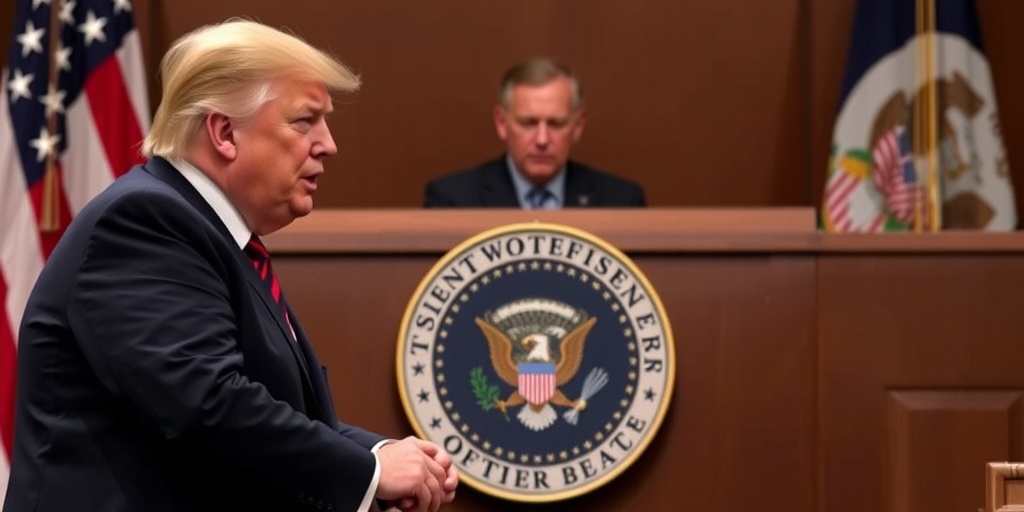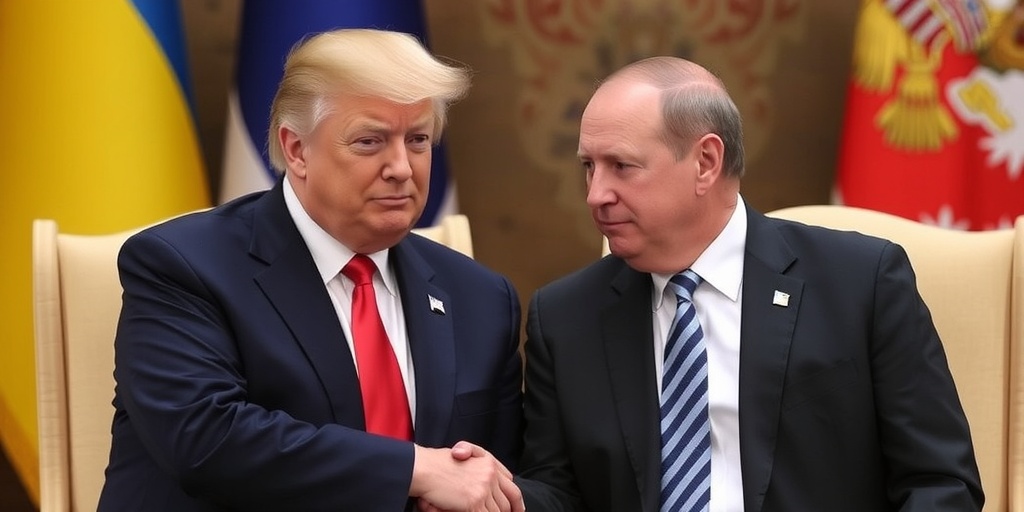Now Reading: Judge Rules Trump Cannot Dismiss Federal Workers Board Chair Without Just Cause
-
01
Judge Rules Trump Cannot Dismiss Federal Workers Board Chair Without Just Cause
Judge Rules Trump Cannot Dismiss Federal Workers Board Chair Without Just Cause

On Tuesday, a federal judge intervened to prevent the Trump administration from dismissing Cathy Harris, the chairwoman of an independent board designed to safeguard federal workers from political discrimination and unfair labor practices, including wrongful termination. Judge Rudolph Contreras, serving in the U.S. District Court for the District of Columbia, ruled that Harris must retain her position, referencing several Supreme Court cases that underline the importance of independence for entities like the Merit Systems Protection Board (MSPB).
This legal decision adds to an ongoing narrative where courts are being called to assess the extent of presidential authority, particularly concerning the restructuring of independent agencies and boards. The ruling follows a series of lawsuits that have contested President Trump’s maneuvers to reshape federal entities and independent panels, with similar legal matters advancing to the Supreme Court.
In his ruling, Judge Contreras made it clear that the mission of the MSPB requires a level of independence that would be compromised if the president could discharge its members without legitimate cause. He stated, “Such independence would evaporate if the president could terminate its members without cause, even if a court could later order them reinstated.”
The decision comes at a critical moment as the Supreme Court deliberates on a comparable case involving Hampton Dellinger, the chief of the Office of Special Counsel, which investigates whistleblower complaints and allegations of misconduct within the federal government. Dellinger was terminated by the Trump administration on February 7, but legal interventions have thus far kept him in office as the courts determine the legitimacy of his dismissal.
Cathy Harris, prior to her dismissal by Trump, was a government attorney with the MSPB. After her termination, she filed a lawsuit asserting that her firing was politically motivated, which prompted her appeal to retain her position. The MSPB was established as a bipartisan body, with three members serving staggered seven-year terms to allow for a balanced representation across different administrations.
Nominated by President Joseph R. Biden Jr. and confirmed by the Senate in 2022, Harris’s position is protected under the law that created the MSPB, which stipulates that a president may only remove an appointee from such a role on grounds of “inefficiency, neglect of duty or malfeasance.” This is indicative of the law’s intent to provide a bulwark against politically motivated dismissals within independent agencies.
As the MSPB becomes the focal point for federal employees contesting widespread personnel changes initiated by Trump and his allies, the board has recently sided with several probationary federal employees who claimed their terminations were unlawful. As the head of the Office of Special Counsel, Dellinger is responsible for investigating these personnel actions and ensuring accountability.
During the hearings on Harris’s case, lawyers from both sides engaged in a contentious debate over the boundaries of presidential authority. Jeremy S.B. Newman, a lawyer representing the Justice Department, argued that the president’s constitutional powers should include the discretion to hire and fire officials in independent agencies, such as Harris and Dellinger. Conversely, Nathaniel Zelinsky, representing Harris, vehemently opposed this view, labeling it as “dead wrong” and expressing concern that endorsing such a perspective would allow the president to dismiss virtually anyone in an authoritative role.
Zelinsky remarked, “The theory you’re hearing is breathtaking,” cautioning that it would effectively mean that anyone exercising executive authority could be subject to dismissal under the current administration’s reasoning. Judge Contreras appeared to affirm Zelinsky’s concerns, noting in his opinion that the MSPB primarily deals with internal personnel matters involving federal employees and was designed by Congress to function free from political influence.
Additionally, the courtroom exchanges touched upon the implications of Harris’s lawsuit on the president’s staffing choices. The defense contended that restricting the president’s ability to remove officials like Harris would interfere with his authority. However, Zelinsky argued that allowing such broad discretion to the president could undermine judicial checks on executive power, a principle rooted in historic decisions like Marbury v. Madison from 1803.
This ruling not only represents a significant moment in the context of ongoing legal challenges to presidential authority but also highlights the critical role independent agencies play in maintaining governmental integrity and protecting employee rights against politically motivated actions. As the legal battles continue, the fate of independence in federal oversight remains a pressing issue in contemporary American politics.
Stay Informed With the Latest & Most Important News
Previous Post
Next Post
-
 01New technology breakthrough has everyone talking right now
01New technology breakthrough has everyone talking right now -
 02Unbelievable life hack everyone needs to try today
02Unbelievable life hack everyone needs to try today -
 03Fascinating discovery found buried deep beneath the ocean
03Fascinating discovery found buried deep beneath the ocean -
 04Man invents genius device that solves everyday problems
04Man invents genius device that solves everyday problems -
 05Shocking discovery that changes what we know forever
05Shocking discovery that changes what we know forever -
 06Internet goes wild over celebrity’s unexpected fashion choice
06Internet goes wild over celebrity’s unexpected fashion choice -
 07Rare animal sighting stuns scientists and wildlife lovers
07Rare animal sighting stuns scientists and wildlife lovers




















